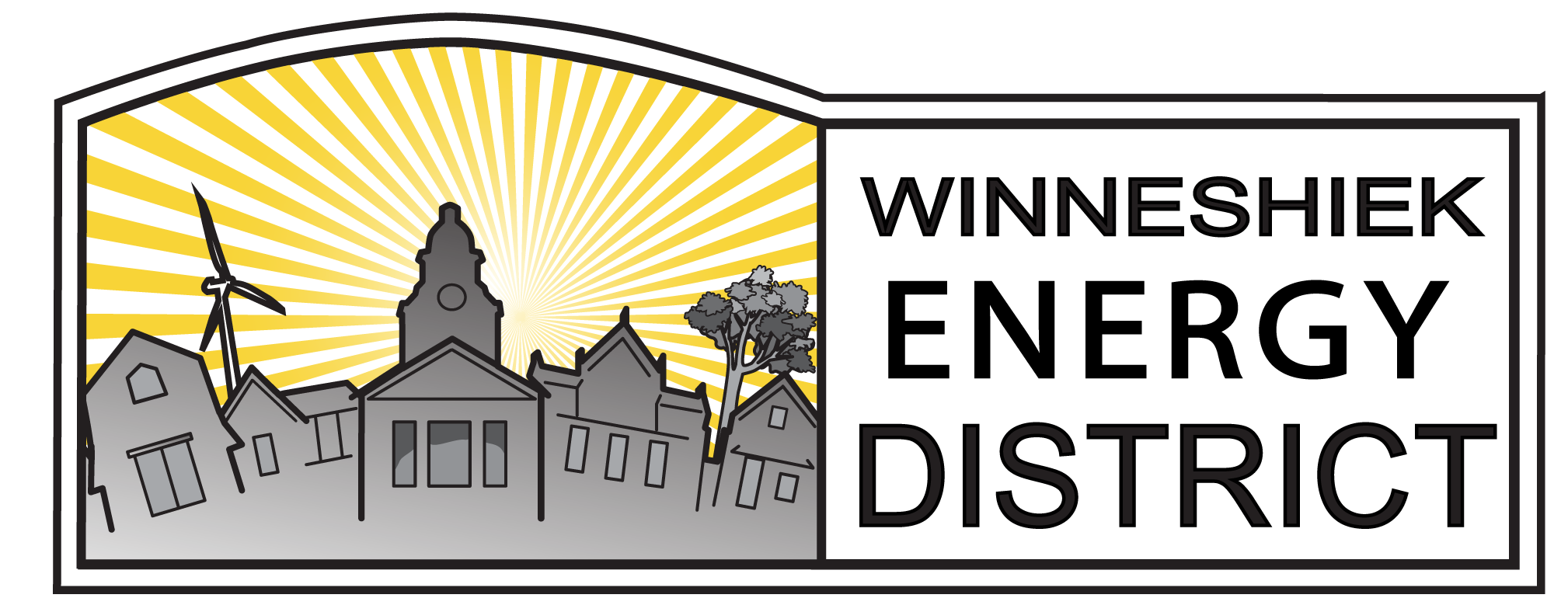Rural Power Energy Lunch Recap
Piper Wood, Americorps Member
Last Tuesday, the Winneshiek Energy District hosted Erik Hatlestad of CURE Minnesota to discuss the Rural Power Coalition and its goals to secure federal investment that will aid in the rural energy transition.
Rural electric cooperatives serve 40 million Americans across the country, and these electric cooperatives are located in over 90% of federally recognized ‘persistent poverty’ counties, including many BIPOC (Black, Indidgenous, People of Color) communities. In these cooperatives, each electric utility customer is a member owner with a stake in the utility, and the capability to vote in annual board leadership elections. In his presentation, Erik outlined the seven cooperative principles that aim to foster energy democracy in rural communities:
- Open and Voluntary Membership
- Democratic Member Control
- Members’ Economic Participation
- Autonomy and Independence
- Education, Training and Information
- Cooperation between and among energy cooperatives
- Concern for Community
While the aspirations of energy democracy are structured into these core principles, Hatlestad pointed out that many energy cooperatives across the country struggle with leadership diversity on their co-op boards, which leads to inequity between the representatives and the demographics of the community they represent.
The Rural Energy Coalition is made up of seven partners from communities across the country whose electric cooperatives have the highest coal capacity in the country. These organizations span across the entire country, creating a patchwork of rural energy advocates from the West Coast to the Southeastern United States. The main goals of the Rural Energy Coalition are to foster energy democracy in rural America, all while pushing rural energy cooperatives to begin adopting clean energy, for the sake of our communities and climate. Hatlestad identified two major barriers to clean energy adoption in rural energy cooperatives during this energy lunch. First, Hatlestad pointed to the mountains of existing infrastructural debt to coal power that burdens many rural electric cooperatives, and the lack of existing investment mechanisms for funding an energy transition. These financial concerns lead to a difficult choice for rural energy cooperatives that want to strengthen their clean energy portfolio for their communities; they can either raise rates on members, or take on more debt. In a lot of ways, Hatlestad identified these as ‘false choices’ that are not financially viable for the cooperatives or their members.
At the beginning of the COVID-19 pandemic in early 2020, the Rural Power Coalition met to draft a list of policy recommendations for congress to safeguard rural communities and energy access during the pandemic. Specifically, a plan that the Rural Power Coalition is most energized about is the proposal to congress to offer $100 Billion for federally insured hardship loans to eliminate the existing energy debt for rural electric cooperatives and assist in the rural energy transition. Given the aforementioned financial burdens to clean energy transition, this plan presents an opportunity for rural electric cooperatives that heavily rely on fossil fuels to transition and meet the goals of the Biden Administration’s climate plan by 2035.
“We need to entirely transform the rural energy system very, very quickly,” –Erik Hatlestad
Over 120 organizations have endorsed this platform as it goes up against congress, and Hatlestad spoke of collaborations and conversations with policy stakeholders like the Senate Agriculture Committee. By directing $100 Billion to rural electric cooperatives, the Rural Power Coalition hopes to make strides in reaching U.S. climate goals, improve rural economic resilience, and further energy democracy within the cooperative system.
Interested in getting involved with this campaign or learning more about the Rural Power Coalition? You can visit their website here, and access resources, or contribute to their Rural Power Now! campaign by making your own video on rural power and sending it to your representatives! Thanks to Erik Hatlestad and the Rural Power Coalition for joining us for the August Energy Lunch at the Winneshiek Energy District! Keep an eye out for the announcement of next month’s energy lunch guests.
Watch the presentation below!
